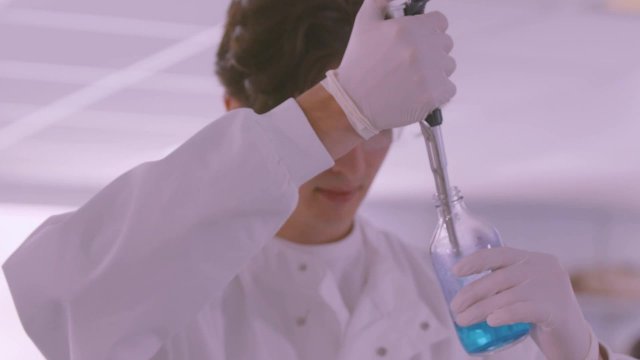What courses are available?
Universities and colleges in the UK are offering courses in the following subject areas:
- biology
- botany
- zoology
- genetics
- microbiology
- sport and exercise science
- molecular biology, biophysics, and biochemistry
- biotechnology
- plant science
- psychology – take a look at our psychology subject guide
There are a wide range of degree courses on offer, with numerous options to take one or more different subjects together. While many will offer core topics with a choice of modules, it is important to remember that there is no national curriculum at degree level and course content can vary significantly.
Choosing a degree subject isn't the same as choosing a degree course; the subject is an umbrella term, but the content delivered can vary greatly from university to university. Many bioscience and biology degrees will offer a broad choice of modules in the first year, with the chance to specialise and focus on one area in the second and third years, this can be a good option if you haven't decided on a specialist area, or would like to keep some flexibility in your studies.
Royal Society of Biology
Subject combinations and available course options include:
- single, joint, and multiple subject combinations
- full-time, part-time, and flexible study options, as well as courses with a placement (sandwich courses)
- qualifications ranging from BSc (hons) degrees, through to HND, HNC, and Foundation Certificates
Joint or combined honours degrees will give you the flexibility to study more than one area of interest, such as combining your studies with a foreign language. This is great for maintaining a breadth of knowledge and experience, but it does mean that you won't have time to cover the same content as a single honours degree.
Royal Society of Biology
Are you considering an accelerated degree? Click here to read more about the possibility of completing your undergraduate course in two years rather than three.
Entry requirements
A levels – To get on to a biology-related degree, you will usually require at least two A levels, including biology and preferably chemistry. Entry requirements range from CCC to AAA, with the universities and colleges most commonly asking for BBB. You will also need five GCSEs (A – C) including science, English, and maths.
Scottish Highers – Entry requirements for Highers (the most common qualification) range from CCCCD to AAAAB, with universities or colleges most frequently requiring AABBB. Occasionally, universities ask for Advanced Highers to supplement Highers. If Advanced Highers are requested, universities or colleges typically ask for ABB.
For sports science degrees, you generally require a science subject (biology or human biology preferred), while for psychology degrees, some universities may prefer/require one science subject. Other than chemistry, physics, and maths, universities may consider the following as science subjects: psychology, environmental studies, geography and geology, computer science, PE, and sports science. Always check with admissions departments.
Selection
You may be invited to attend an open day, part of which can include a small group exercise led by academic staff, at which you will be asked to talk about a relevant biological or biomedical topic and discuss it with other members of the group.
Personal statement
Universities will be looking for evidence that you are well informed about the subject and have a strong interest/motivation, which could be demonstrated by:
- relevant work experience/shadowing or voluntary work
- additional reading and research of particular topics
- membership of related societies/clubs
How to write your personal statement
Apprenticeships
If you want to combine work and study while earning a salary, you could consider an apprenticeship. Which apprenticeships are available, and how you apply, depends on where you live.
Find out more about apprenticeships across the UK.
There are over 60 apprenticeships in the health and science sector available in England, with more in development.
Each apprenticeship sets out occupational standards for specific job roles, designed by employers. The standards outline the skills, knowledge, and behaviours required to demonstrate that an apprentice is fully competent in the job role.
Degree apprenticeships (Levels 5 – 7)
Key areas of employment
There is a wide number of science-related careers you can enter with a biological science degree. Additionally, some careers require a relevant postgraduate qualification. The key areas of employment include:
- healthcare – public and private
- clinical research
- pharmaceutics and biotechnology
- environment and agriculture
- education
- scientific sales and marketing
- technical media and journalism
Related careers
Examples of related careers include the following:
- research scientist
- biomedical scientist
- forensic scientist
- microbiologist
- healthcare scientist in clinical biochemistry, haematology, or immunology
- pharmacologist
- psychologist
- science lecturer
- science journalist
- sports therapist
- toxicologist
- zoologist


